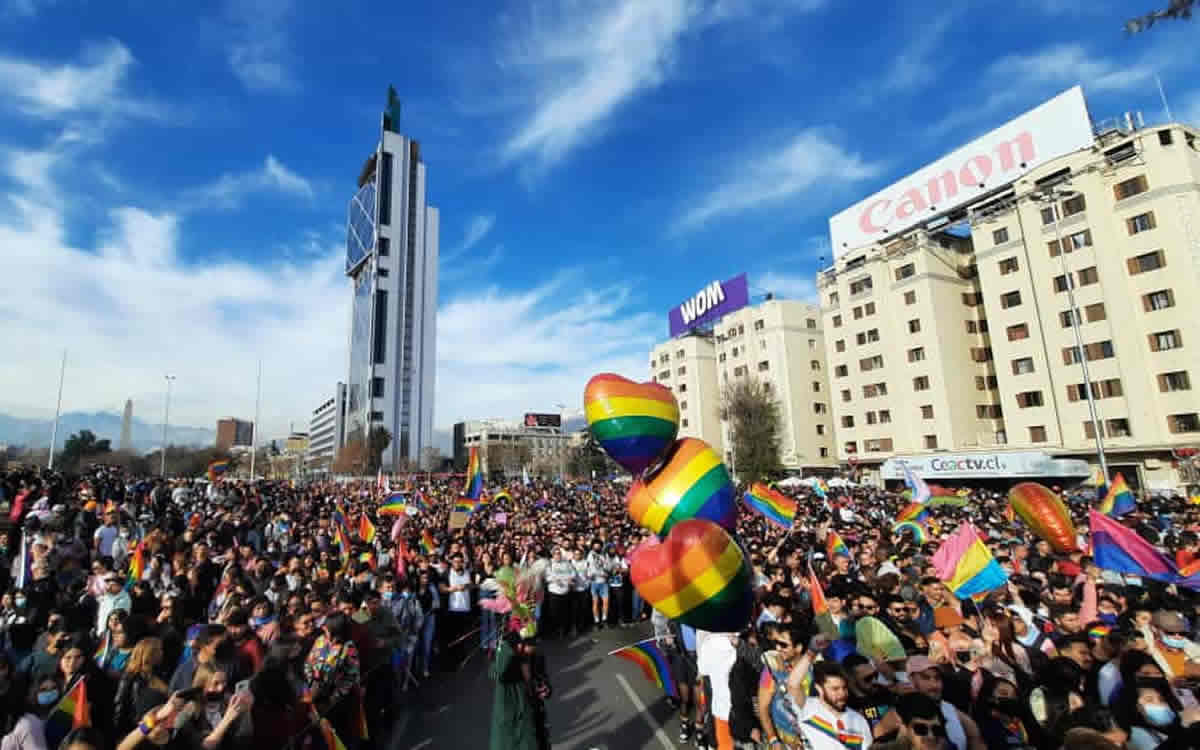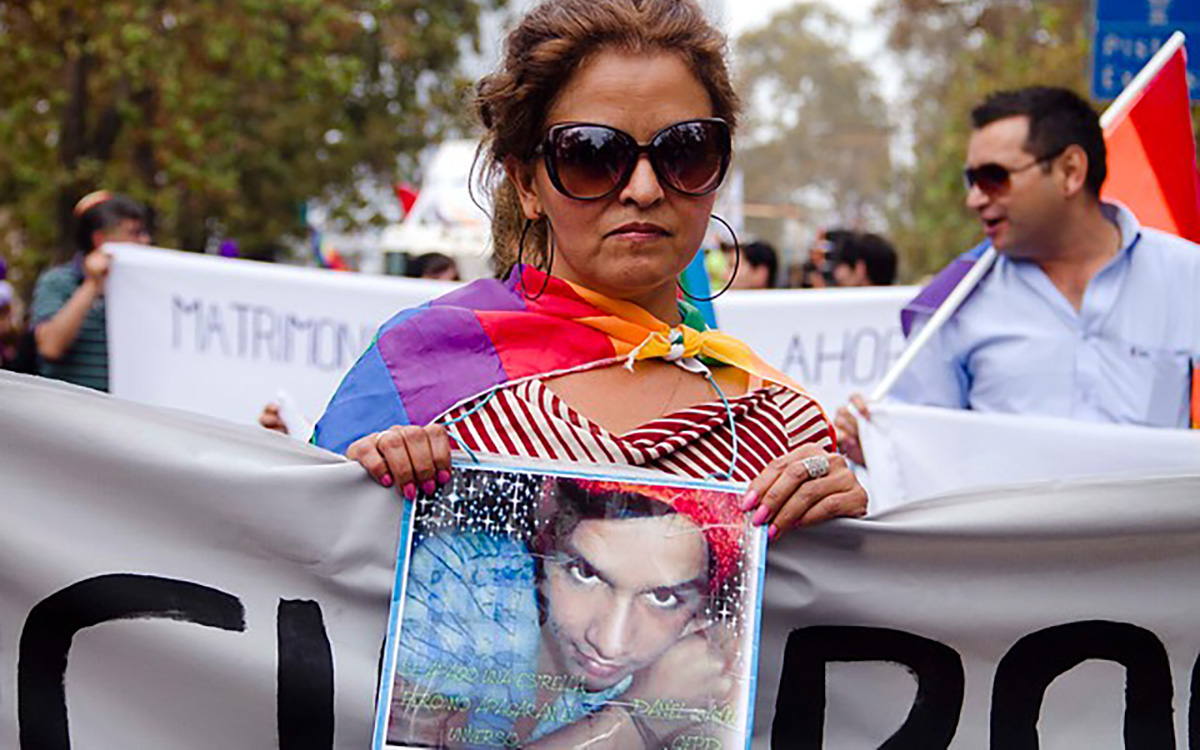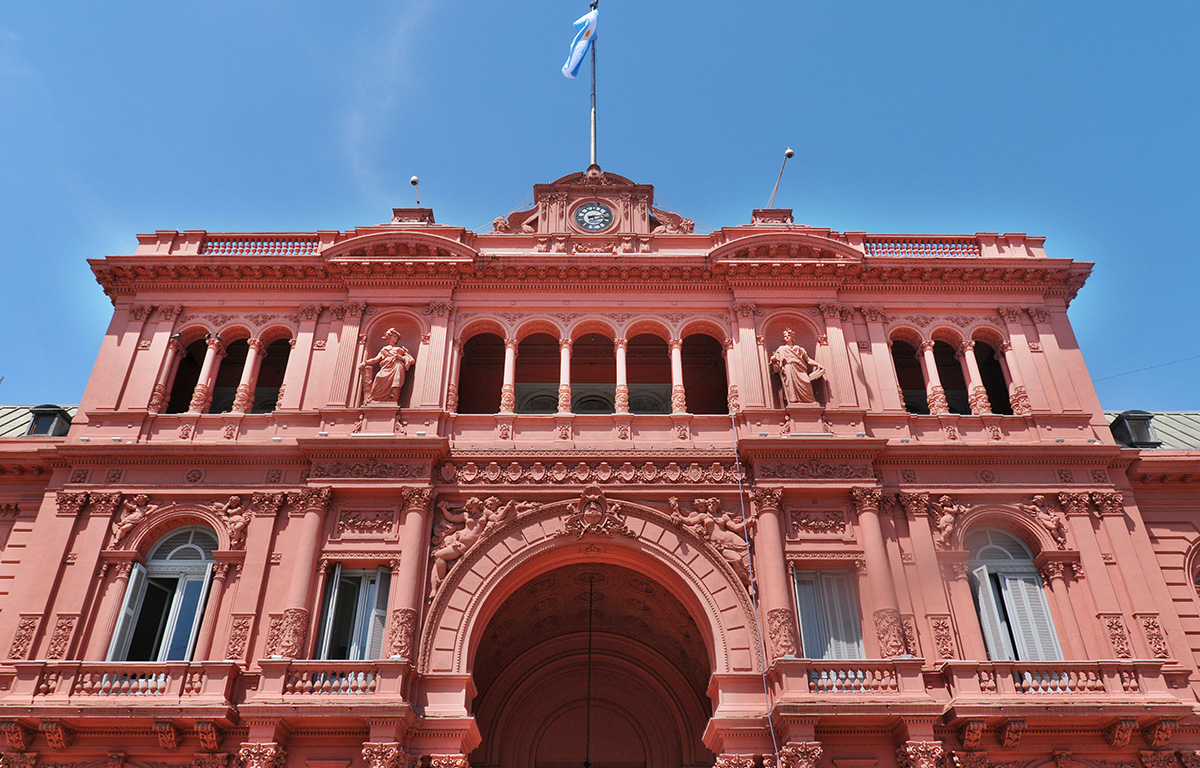South America
Chileans overwhelmingly reject new constitution
Document would have enshrined LGBTQ rights in country

Chileans on Sunday overwhelmingly rejected a new constitution that would have enshrined LGBTQ rights in an unprecedented way.
Upwards of 80 percent of Chileans in October 2020 voted in favor of changing the constitution.
More than 60 percent of them rejected the new constitution in Sunday’s referendum. Slightly more than 38 percent of Chileans voted to approve it.
The need to change the current constitution, which is a legacy of Gen. Augusto Pinochet’s dictatorship, arose after social unrest in 2019 that exposed long-standing standing inequalities in the South American country.
The new constitution, which a Constitutional Convention with an equal number of men and women and eight openly LGBTQ members, was drafted in one year. Gaspar Domínguez, a gay doctor, was the Constitutional Convention’s vice president.
There were several points of disagreement.
One of the constitution’s most controversial amendments called for Chile to become a plurinational state that would have recognized the existence of the different indigenous people in the country. The “rejection” groups argued the recognition of indigenous people would have created a privileged group and divided the country.
This discourse permeated the debate over the constitution.
President Gabriel Boric’s government said the referendum went well in terms of participation, public transportation and the functioning of the institutions that helped carry it out. The results were available a few minutes after the polling stations closed.
Boric addressed the country from La Moneda, Chile’s presidential palace, in a nationally broadcast speech after the results were known.
He valued the high participation and celebrated the “triumph of democracy.” At the same time, however, he said the “constituent process has not ended.”
Boric said his government will “agree as soon as possible on the terms of the new constitutional process,” alluding to the fact that the Pinochet-era constitution must be changed. Those who supported the “rejection” option have also committed themselves to find a new way to change the constitution.
Congresswoman Emilia Schneider, a Boric supporter who is the country’s the first openly transgender member of Congress, on Twitter acknowledged the “hard result” of the referendum.
“The constitution of the dictatorship does not unite us and we could not build a majority around the proposal for which we voted,” said Schneider. “The cycle of changes is not over. Citizens demand social rights and more democracy. It is urgent to give answers.”
“The constituent process does not end here. It is time for those on the side of rejection to assert their commitment,” she stressed. “From tomorrow we must work for a new democratic process, with parity, with indigenous peoples and (a) participatory (process.) Chile has spoken and we need a new constitution.”
Most LGBTQ organizations and activists in Chile urged voters to “approve” the new constitution because it would have extended explicit rights to the community for the first time. These would have included the recognition of non-heteronormative families outside of marriage, the right to gender identity and expression, nondiscrimination and reproductive rights.
Alessia Injoque, director of Fundación Iguales, an organization that works with the Human Rights Campaign, told the Washington Blade “the new constitution, if approved, would have represented a very significant advance in the protection of our families, in freedom to live authentic lives and without discrimination.”
“It is regrettable that this advance will not be consolidated, but it is time to recognize the result and work so that these rights are part of the next process,” Injoque lamented.
Injoque in response to a question about the possibility of a new constituent process to draft a new constitution said “in politics the doors are never completely closed.”
“It is difficult to think that we will have such a clear opportunity, with such a strong constitutional proposal on LGBTIQ+ rights, but we will continue working until we achieve full equality and the same freedoms,” said Injoque.
Javiera Zuñiga, the spokesperson for the Movement for Homosexual Integration and Liberation, another LGBTQ rights group in Chile, told the Blade the draft constitution had “unprecedented positive elements” and there was “an excessive confidence that all citizens felt highly represented by the text.”
“Certainly in what follows in the constitutional process, it will be fundamental to achieve greater consensus on the matters that did not convince Chileans on this occasion,” said Zuñiga.
“The matters related to substantive equality that were included in the proposal are not part of the conflictive elements in the proposal, such as nondiscrimination, respect for identity and equality of rights are quite well installed among Chileans as basic principles of the society we wish to build,” added Zuñiga. “I believe that this has been one of the greatest gains of the process.”
Zuñiga said Movilh “will continue to contribute to (the constituent process and) nurture it and achieve for the community nothing less than what this proposal considered.”
South America
Daniel Zamudio murderer’s parole request denied
Raúl López Fuentes convicted of murdering gay man in Chilean capital in 2012

Chile’s Parole Commission on Tuesday rejected a request to allow one of the four men convicted of murdering Daniel Zamudio in 2012 to serve the remainder of his sentence outside of prison.
Raúl López Fuentes earlier this month asked the commission to release him on parole. Zamudio’s family and members of the Movement for Homosexual Integration and Liberation, a Chilean LGBTQ rights group, had gone to court to block the request.
Among the arguments put forward that influenced the commission’s decision is what Movilh categorized as his “high risk of recidivism, linked to the adherence of an antisocial behavior with a tendency to minimize his acts transgressing social norms.”
The commission pointed out that López has psychopathic traits because he is aware of the damage he did to Zamudio and his family.
“In addition, he maintains a high risk of violence, not being advisable to grant the benefit,” the report said.
Zamudio was a young Chilean man who became a symbol of the fight against homophobic violence in his country and around the world after López and three other young men with alleged ties to a neo-Nazi group beat him for several hours in Santiago’s San Borja Park on March 2, 2012. Zamudio succumbed to his injuries a few weeks later.
The attack sparked widespread outage in Chile and prompted a debate over homophobia in the country that highlighted the absence of an anti-discrimination law. Lawmakers in the months after Zamudio’s murder passed a law that bears Zamudio’s name.
López in 2013 received a 15-year prison sentence after he was convicted of killing Zamudio. Patricio Ahumada received a life sentence, while Alejandro Angulo Tapia is serving 15 years in prison. Fabían Mora Mora received a 7-year prison sentence.
Zamudio’s mother, Jacqueline Vera, exclusively told the Washington Blade after the commission rejected López’s request that “we as a family are calmer.”
“Even with my husband we were in a lot of pain at the beginning. It was like a blow of very strong emotions, so we tried to stay calm because we still had to solve the problem,” Vera said. “We had four days to solve it.”
López will have to serve the remaining three years of his sentence before his release.
“I will continue working to improve the Zamudio Law and so that this murderer does not leave prison because he is a danger to society, he does not represent repentance and people like this cannot be free,” she said. “For the same reason, we have to work so that hate crimes have life imprisonment and that is what we will concentrate on.”
South America
Man convicted of killing Daniel Zamudio in Chile seeks parole
Raúl López Fuentes in 2013 sentenced to 15 years in prison

One of the four men convicted of murdering a young gay man in the Chilean capital in 2012 is seeking parole.
Raúl López Fuentes in 2013 received a 15-year prison sentence after he was convicted of killing Daniel Zamudio.
Zamudio was a young Chilean man who became a symbol of the fight against homophobic violence in his country and around the world after López and three other young men with alleged ties to a neo-Nazi group beat him for several hours in Santiago’s San Borja Park on March 2, 2012. Zamudio succumbed to his injuries a few weeks later.
The attack sparked widespread outage in Chile and prompted a debate over homophobia in the country that highlighted the absence of an anti-discrimination law. Lawmakers in the months after Zamudio’s murder passed a law that bears Zamudio’s name.
Patricio Ahumada received a life sentence, while López and Alejandro Angulo Tapia are serving 15 years in prison. Fabían Mora Mora received a 7-year prison sentence.
López has asked the Seventh Santiago Guarantee Court to serve the last three years of his sentence on parole. Zamudio’s family and Jaime Silva, their lawyer who works with the Movement for Homosexual Integration and Liberation, oppose the request.
Movilh represented Zamudio’s family after his murder.
Zamudio’s mother, Jacqueline Vera, during an exclusive interview with the Washington Blade said López’s petition “provoked all the anguish, all the commotion of his time.”
“It was very cruel because in fact two days before we were at Daniel’s grave, where it was 12 years since his death and the beating,” said Vera. “He really does not deserve it.”
“We have gone through very difficult moments,” she added.
The mother, who later created a foundation to eradicate discrimination in Chile, was emphatic in indicating that she and her family “do not accept the release of this guy because he is a danger to society and a danger to ourselves.”
“At the last hearing where they were sentenced, they told us that we are going to remember them when they get out,” said Vera. “They threatened us with death. There is a video circulating on social networks where they were in front of me and they laughed and made fun of me. They told me that I remembered that I had three more children.”

Regarding the possibility that the Chilean justice system will allow López to serve the remaining three years of his sentence on parole, Vera said “with the benefits here in Chile, which is like a revolving door where murderers come and go, it can happen.”
“In any case, I don’t pretend, I don’t accept and I don’t want (López) to get out, I don’t want (López) to get out there,” she said. “We are fighting for him not to get out there because I don’t want him to get out there. And for me it is not like that, they have to serve the sentence as it stands.”
LGBTQ Chileans have secured additional rights since the Zamudio Law took effect. These include marriage equality and protections for transgender people. Advocacy groups, however, maintain lawmakers should improve the Zamudio Law.
“We are advocating for it to be a firmer law, with more strength and more condemnation,” said Vera.
When asked by the Washington Blade about what she would like to see improved, she indicated “the law should be for all these criminals with life imprisonment.”
South America
Argentine president announces state institutions can no longer use inclusive language
Activists condemn Javier Milei’s anti-LGBTQ policies

In a move that has generated concern and criticism throughout the country, Argentine President Javier Milei has announced government institutions can no longer use inclusive language and gender-specific references in their public policies.
This decision comes on top of other controversial measures, such as the closure of the Women, Gender and Diversity Ministry, and an announcement to shutter the country’s National Institute against Discrimination, Xenophobia and Racism.
Former Diversity Undersecretary Alba Rueda, a transgender woman who was the country’s special envoy for LGBTQ issues under former President Alberto Fernández’s government, and gay Congressman Esteban Paulón, in exclusive interviews with the Washington Blade discussed the impact of Milei’s announcement and the impact it will have on Argentine society in terms of human rights and protections for queer people.
“The State had been using the gender perspective and inclusive language to make visible the presence of women in key roles and to recognize nonbinary identities,” Rueda said. “This measure not only erases those advances, but also excludes people who are already recognized by the State in their nonbinary gender identities.”
Rueda noted Congress more than a decade ago “passed the gender identity law, which states in its first article that the State will respect the gender identity of all persons. After changes were made in the structure of the State to be able to generate identity documents, a series of court rulings that recognize nonbinary people in their nonbinary identity arose in 2016, and this (and) that remained unresolved during the Macrista government without recognizing the identity of nonbinary people.”
She pointed out Fernández’s government in 2021 issued Decree 746, which recognized “people with nonbinary identities, gender fluid and those who avoid naming their gender before the State.”
“The State already recognizes this citizenship and here comes that the prohibition of inclusive language excludes in the way of naming people who are already recognized by the State and that effectively the recognition of their gender identity is the condition of not being binary,” said Rueda. “So, the decree is in force, the law is in force, there are nonbinary people with their documents, but who today are not being named in all state documents.”
Paulón said the prohibition of inclusive language is a gesture of violence towards LGBTQ communities.
“Inclusive language has given entity and identity to an important part of the Argentine population,” he said. “This measure represents an act of harassment and violence towards those who identify with inclusive language, including the queer and LGBTQ+ collective.”
“Language is a social and cultural construction, and in Argentina today inclusive language represents and has given entity and identity to an important segment of the population and to a series of social collectives,” added Paulón. “Therefore, something that is not created by decree can hardly be eliminated by decree.”
The congressman told the Blade that Milei’s government announcement was “something that was clearly going to happen.”
“I don’t see the government campaigning in inclusive language or celebrating diversity,” said Paulón.
Milei’s decision has generated intense debate in Argentina, with critics arguing these measures represent a step backwards in the protection of human rights and an attack on diversity and inclusion. Milei’s supporters, on the other hand, defend these measures as part of an effort to promote conservative policies and reinforce national identity.
“It is very serious because it limits the exercise of citizenship and affects the nonbinary population, women and the trans population that is not recognized within the gender binarism,” said Rueda.
She noted Milei during his presidential campaign raised these issues, and has decided to implement policies that harm women and LGBTQ people.
“This is the gravity that is lived today in Argentina, that the Argentine head of state puts in confrontation and reduction of rights to women and LGBTIQ+ people,” Rueda added.
This ban on inclusive language and gender-specific policies has been announced against the context of increased political and social polarization in Argentina. With inflation at alarming levels and an economy in crisis, Milei’s government has sought to consolidate its base by adopting controversial measures that have generated division and unrest in Argentine society.
“That is the institutional and democratic gravity today in Argentina, that the head of state attacks and creates internal enemies and that position is accompanied by the media, amplifying a negative message about our communities,” Rueda said. “Of course that translates into social networks, but it also translates into the attacks that we LGBTIQ+ people experience in the public sphere.”
-

 District of Columbia2 days ago
District of Columbia2 days agoReenactment of first gay rights picket at White House draws interest of tourists
-

 District of Columbia2 days ago
District of Columbia2 days agoNew D.C. LGBTQ+ bar Crush set to open April 19
-

 Arizona2 days ago
Arizona2 days agoAriz. governor vetoes anti-transgender, Ten Commandments bill
-

 Africa4 days ago
Africa4 days agoUgandan activists appeal ruling that upheld Anti-Homosexuality Act











